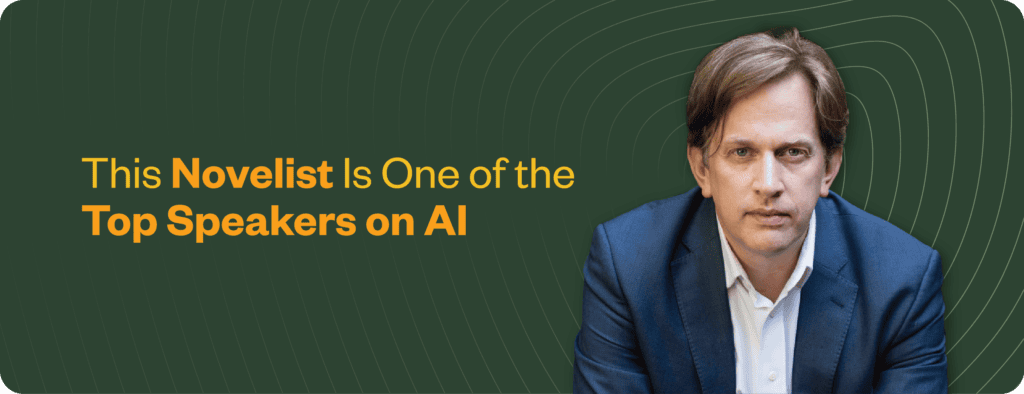A journalist who’s been following AI since long before it entered the mainstream, Stephen Marche recently wrote a blockbuster article on linguistic AI for The New Yorker, revealing how this powerful technology was invented almost by accident—and what comes next. “We’ve never had a truly ‘other’ language before—a new and alien form of discourse that understands in a way we can’t understand,” he writes.
As the author of the first ever fully AI-generated novella, Death of an Author, Stephen has an unparalleled understanding of how this new technology is blurring the line between human and machine—and why uniquely human creativity is more important today than ever before.
Stephen has been collaborating with GPT and related tools since 2019, well before generative AI entered the public conversation. He’s been profiled in The New York Times and WIRED, which called his book “the best example yet of the great writing that can be done with an LLM like ChatGPT.” And he’s on a first-name basis with many of the pioneers in the field, including the researchers who invented the transformer (the “T” in ChatGPT).
In talks, he draws on his experience and deep understanding of the field to give audiences an accessible and optimistic look into the future of humanity. He shows us how we can prepare the next generation to thrive: “We’ve been teaching students how to write like machines for a long time, and now we’re going to have to teach them how to write like human beings.” And he offers us all the tools we need to tap into human-machine collaboration in the AI future.
















